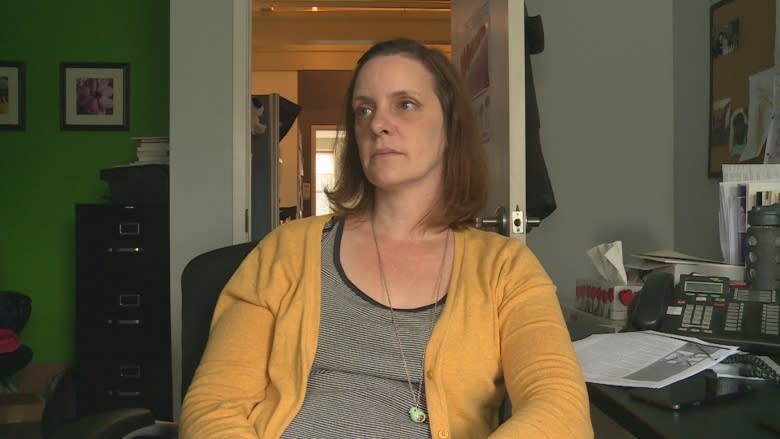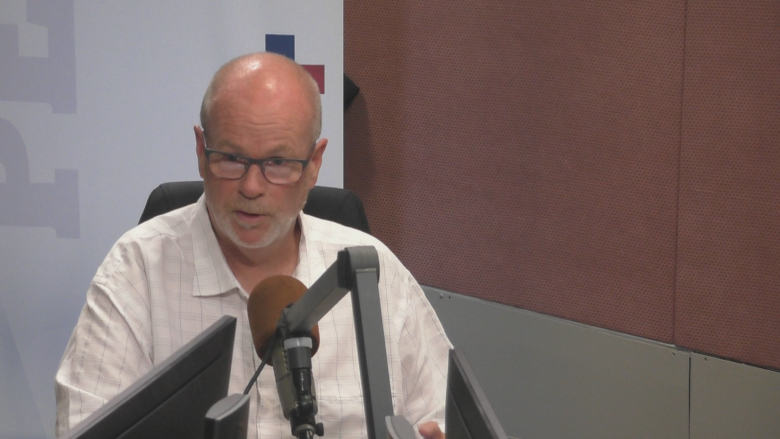Housing panel tosses around solutions for low vacancy rate
The housing crunch is an issue at the front of many Islanders' minds these days, and it was the focus of a Mainstreet P.E.I. panel that brought several experts together on Wednesday.
Possible solutions were discussed by a group including Charlottetown mayor and provincial housing plan senior advisor Clifford Lee, local developer Tim Banks, Anderson House executive director Danya O'Malley and Kings Square Affordable Housing president Bill Campbell.
Solutions ranging from density requirements, to rental subsidies, to helping the working poor get the most out of their dollar were examined.
Banks said Charlottetown should allow developers to build higher units to help with the growing density issue the city faces.
"When you have a restriction that says you can only build a building that's 40 feet high and you have to go to public meetings to do anything outside of that, it's absolutely crazy," Banks told Mainstreet guest-host Kerry Campbell.
'All kinds of silliness'
Other cities in Atlantic Canada allow developers to build six-storey buildings with wood-frame technology, Banks said. Charlottetown should be looking at lowering the per door cost of buildings, he added.
"They want to do it case-by-case and get all kinds of silliness involved in it."
Lee suggested people living on a low income should look at buying a home.
"I don't know who ever said, 'If you're on social assistance or if you're living in affordable homes, you have to rent.' What's wrong with home ownership for some of these people?"
'Coming up with nothing'
Lee also brought up the concept of tiny homes, to which Banks replied he had tried doing that on Richmond Street and "everybody fought us."
"Where was the city moving forward with us? Where was the province in terms of standing behind us?" Banks replied to Lee.
O'Malley said people using a shelter like Anderson House are particularly affected by the housing crunch because they're staying longer at those places after unsuccessful attempts to find somewhere to live.
"We see the number of ads they respond to, we see the number of areas they're willing to live in, we see how flexible they are with what they're looking for, and still coming up with nothing," she said.
Employment part of the problem
"This is not a new problem. It's something we've been saying needs attention for a very long time."
Some rentals are in areas that aren't safe for vulnerable people, and that sometimes leads to people coming back to the shelter, she said.
The struggle to find employment goes hand-in-hand with the housing issue, O'Malley said.
"Jobs now are not a guaranteed 40 hours a week, sometimes they're short-term, seasonal work, sometimes they're just contract, the hours can be unstable.
"When you're dealing with a lower income like that, [even with affordable housing], the person still ends up paying a large portion of their income on just housing, which is very tough."
'Interesting approaches from developers'
Campbell said Kings Square has, for years, tried to be all things to all people despite limited resources. But with hundreds of people on the waiting list, a collaborative approach is needed now, he said.
"I must say I'm getting some interesting approaches from developers and people who are starting to realize, 'Hey, this is not funny anymore. It's a serious, serious problem.'"
Many of Kings Square's social projects are in industrial areas of Charlottetown because construction costs downtown are not sustainable, Campbell said.
'Drive the door costs down'
That's where taller buildings would help, Banks said.
"If there was more allowable density on that site and meeting all the national building code requirements, the people selling the land would be able to sell it for the same price and get more units and drive the door costs down.
"It really is all economics at the end of the day."
Lee said the province is looking at subsidizing existing rents so people don't have to move.
"This way it doesn't create a bunch of vacancies in an existing building, nor does it cause the upheaval of the family having to move from one end of the city to another. I think you'll see rent subsidies continue to grow."
More P.E.I. news





